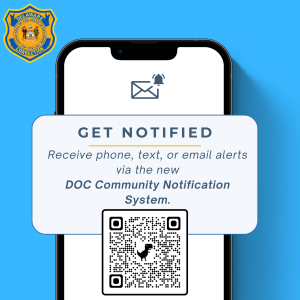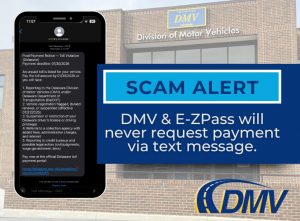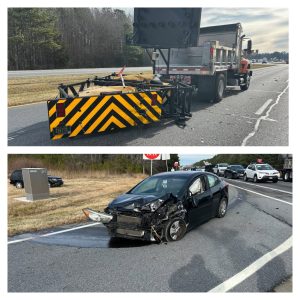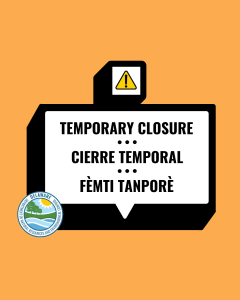To coinciding with grants, U.S. DOT also releases comprehensive blueprint for ending distracted driving nationwide
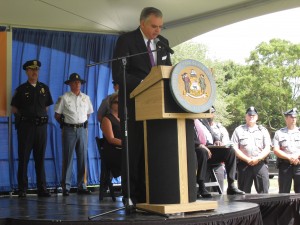 Dover- U.S. Transportation Secretary Ray LaHood announced today that the Delaware Office of Highway Safety (OHS) will receive $900,000 in federal support to expand the Department’s “Phone in One Hand, Ticket in the Other.” pilot enforcement campaign to reduce distracted driving.
Dover- U.S. Transportation Secretary Ray LaHood announced today that the Delaware Office of Highway Safety (OHS) will receive $900,000 in federal support to expand the Department’s “Phone in One Hand, Ticket in the Other.” pilot enforcement campaign to reduce distracted driving.
“We thank Secretary LaHood for personally coming to Delaware to announce this grant. We will use this money to implement a campaign to encourage motorists to put their cell phones down while driving,” said Delaware Governor Jack Markell. “By raising awareness of the dangers of distracted driving, we help prevent needless crashes and keep Delaware’s roads safer. Safer roads mean people get to jobs, schools, and businesses without delay and without injury.”
DOT is providing Delaware with a total of about $900,000 in federal support for a pilot program that will examine whether increased police enforcement coupled with paid media and news media coverage can significantly reduce distracted driving over a widespread area.
OHS is planning to use $300,000 for three 2 week waves of enforcement for the “Phone in One Hand, Ticket in the Other” campaign with the first wave to run September 18 to October 1, 2012 followed by April 9-22, 2013 and June 4-17, 2013 and will include statewide enforcement in all three counties and will include every police department in the state. Another $400,000 will be allocated towards paid media that will accompany the enforcement efforts and $200,000 toward evaluation of the demonstration project.
“This dedicated enforcement effort coupled with public education and program evaluation illustrates the seriousness in which we view distracted driving. For those who still insist on texting and talking on their cell phone this grant will go a long way to allow them to also talk to one of Delaware’s finest,” said Lewis D. Schiliro, Secretary of the Department of Safety and Homeland Security.
Delaware is one of only 2 states that have been selected to receive federal grants for “Phone in One Hand, Ticket in the Other” pilot project. This multi-market effort will mirror the approach used in smaller-scale demonstration projects completed in 2011 in Hartford, CT, and Syracuse, NY. The 2011 pilot projects found dramatic declines in distracted driving in the two communities tested—with texting dropping 72 percent in Hartford and 32 percent in Syracuse.
“We congratulate Delaware’s Office of Highway Safety and Secretary LaHood for bringing this important effort to our state,” says Jim Lardear, Director of Public and Government Affairs for AAA Mid-Atlantic. “AAA knows that it is simply not enough to just pass a law; good laws must go hand in hand with visible, committed enforcement and broad public awareness campaigns. We continue to urge drivers to avoid all forms of distraction behind the wheel.”
Delaware law enforcement has issued over 10,000 cell phone citations since the cell phone law went into effect in Delaware on January 2, 2011. In 2010, cell phone distraction was a contributing factor in 199 crashes and in 139 crashes in 2011. Through May of this year, cell phone distractions caused 47 crashes. Texting caused 26 crashes in 2010, 14 crashes in 2011 and 7 crashes through May of this year.
Delaware cell phone law bans texting while driving as well as bans the use of hand-held cell phones. Drivers are required to utilize hands-free technology in order to use a cell phone while driving. It also bans the use of pagers, blackberry’s, PDA’s, laptops, games, or the use of any other electronic device by someone while driving. If you have to make a call, pull over to a safe place to use your cell phone or use a hands free device like a blue tooth.
If a police officer observes you using a handheld device while driving they can pull you over and give you a $106 fine for your first offense. If you get caught again penalties increase and can go up to $300. Violations do not incur points on your driver’s license.
Some exceptions to the law include the activation or deactivation of hands free equipment because not all cell phones are voice activated. Thus, drivers may pick up the phone to dial, then put it down and use hands free equipment to communicate. Another exception allows a person to use a hand held cell phone to call authorities to report a fire, road hazard, traffic crash, reckless driver or any other unsafe road conditions. Also exempt are those business or government employees who use a 2-way radio that is mounted or attached to their vehicle to communicate with dispatch or other employees as a part of their official work duties.
For more information about the Office of Highway Safety and the ““Phone in One Hand, Ticket in the Other” pilot project please visit us online at www.ohs.delaware.gov, follow us on Twitter @DEHighwaySafe, like us on Facebook at www.facebook.com/ArriveAliveDE or subscribe to OHS YouTube channel DelawareOHS.




































